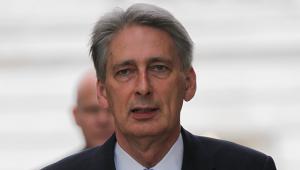Chancellor Philip Hammond’s measures were “baby steps in the right direction” but “sticking plasters – not the fundamental look at the tax base as well as tax rates that is required”, IFS director Paul Johnson said in a response to the Budget on Thursday.
The proposal to increase national insurance contributions has since become controversial amid claims it breaks the 2015 Conservative manifesto.
Prime minister Theresa May said yesterday she will delay the vote on the changes for self-employed people until the autumn.
Mr Hammond announced in his Budget on Wednesday the main rate of class 4 NICS for the self-employed would be increased from 9% to 10% in April next year when class 2 was abolished. This rate would see a further increase of 1% to 11% from April 2019.
Hammond predicted his plan would raise £145m for the public purse each year by 2021, and would amount to extra tax on average of 60p per week per self-employed person in the country. Self-employed people pay class 2 NICs if their profits are £5,965 or more a year and class 4 if their profits are £8,060 or more a year.
“The 2% increase in NICs for the self-employed closes a small fraction of the gap between employees and the self-employed,” Mr Johnson said.
As class 2 NICs were being abolished at the same time, it will leave any self-employed person with profits of less than about £15,570 better off, he added.
The IFS director explained the chancellor’s decision to reduce the tax-free dividend allowance from £5,000 to £2,000 did not appear to be “coherent policy making”.
“It happened because he worries that, by increasing tax on the self-employed, he increases the incentive to incorporate,” Johnson stated, addding: “He is right to worry.”
He said the only “substantive spending announcement was on social care” in the Budget, explaining that the IFS would release a statement on this shortly. The chancellor pledged £2bn to help councils plug the social care crisis.
Johnson pointed out the economy was not in the rosy state as could be suggested by the positive Office for Budget Responsibility figures presented in the Budget - with public borrowing in 2016/2017 at £51.7bn - £16.4bn lower than forecast in the autumn budget.
GDP per capita was still barely 2% of its 2008 level with the “big story of the last decade” being 10 years without growth – “a decade without precedent in the UK in modern times".
He also pointed out borrowing in 2020 was likely to be £20bn - £30bn more than intended a year ago. The UK was expected to be in £10bn surplus by 2020.
This means there is a “lot of work to do in the next Parliament to get to the planned budget balance”.
Johnson believed it was likely the Conservatives had broken a manifesto pledge with the national insurance proposals.
“If politicians continue to make silly manifesto pledges about not changing taxes and the rest of us resist sensible changes such as this, we will end up with the tax system we deserve – inefficient, inequitable, complex and increasingly unable to raise revenue in the face of a changing economy.”



















